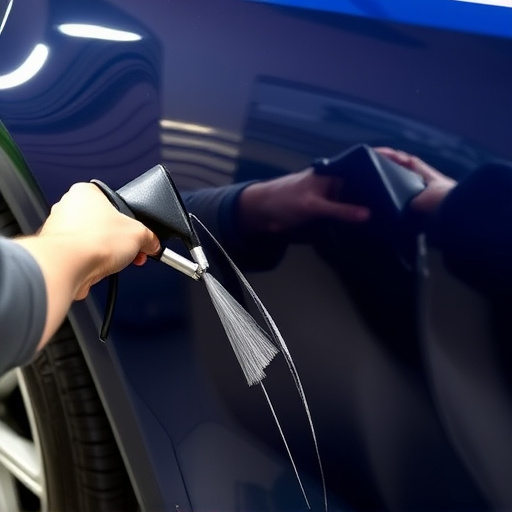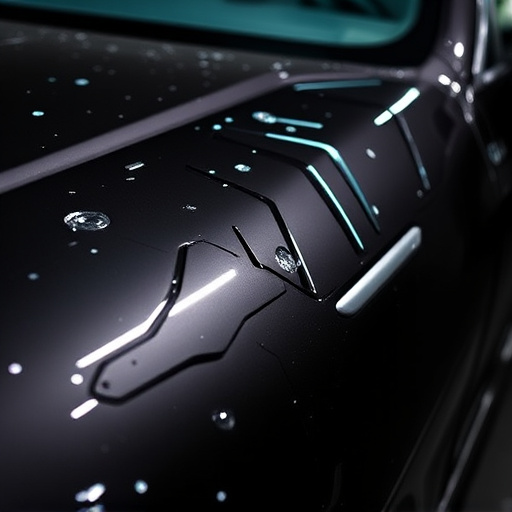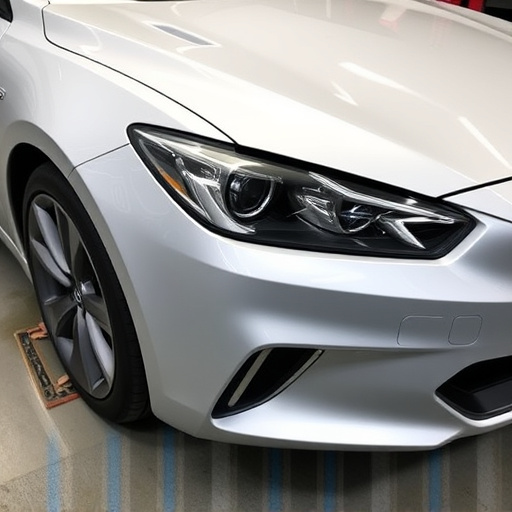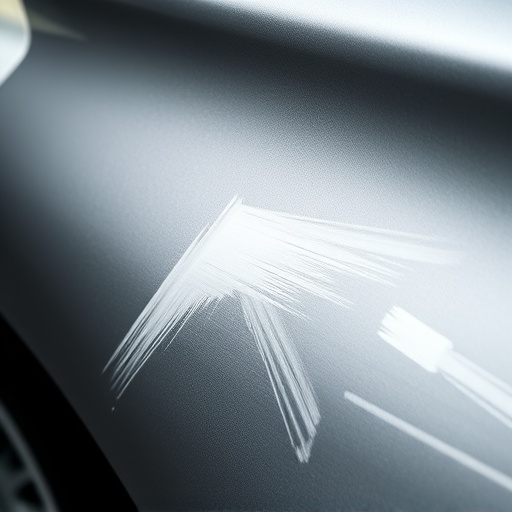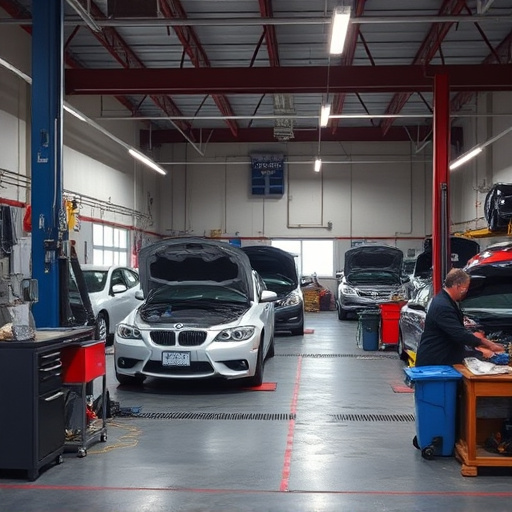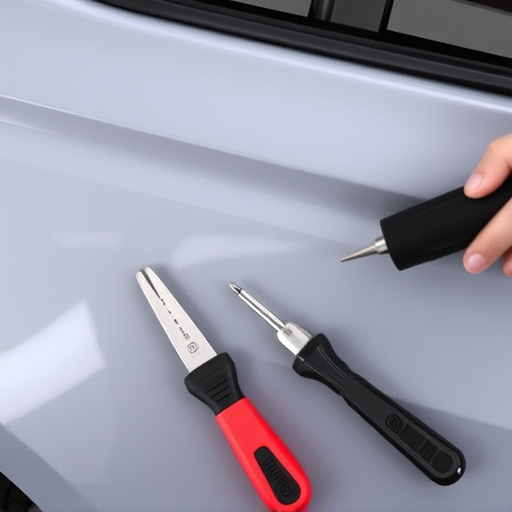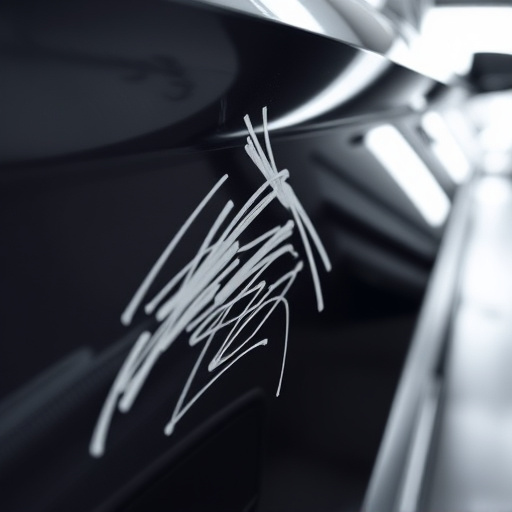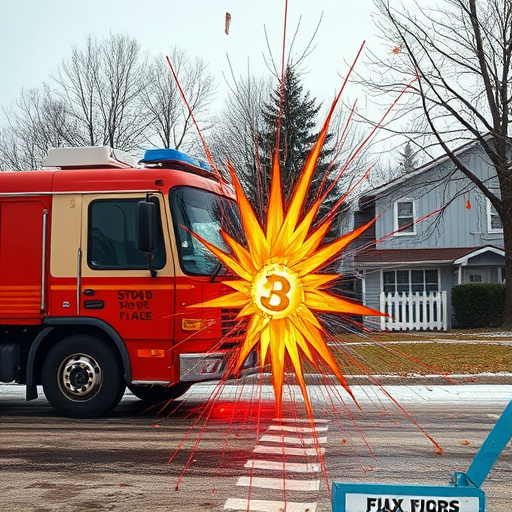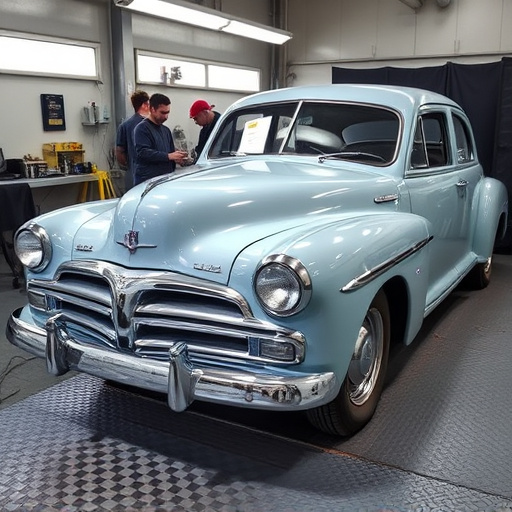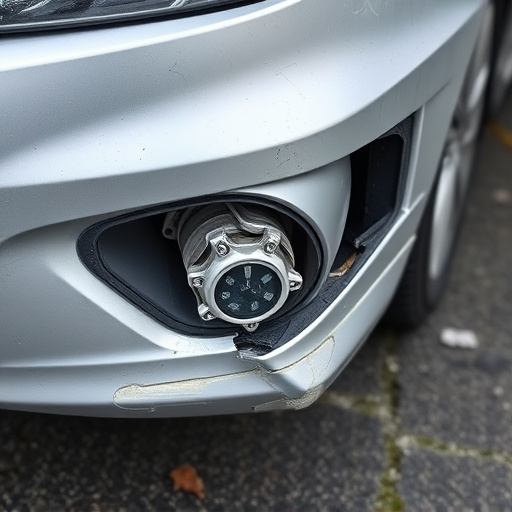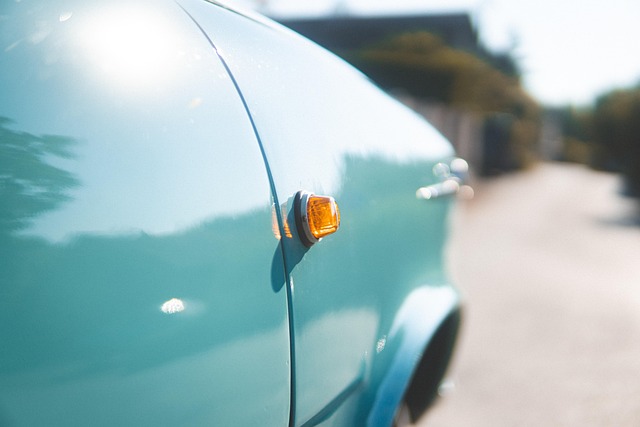Advanced sensors and AI revolutionize vehicle safety restoration by providing detailed data for precise techniques like 3D imaging for exterior repairs. Real-time monitoring systems ensure accurate component replacement and frame realignment, meeting stringent industry standards, and enhancing overall vehicle safety restoration quality.
Modern vehicles are equipped with an array of advanced sensors and technologies that significantly enhance safety restoration accuracy. From unlocking valuable data through sophisticated sensors to integrating AI for predictive analysis, these innovations ensure restored vehicles meet the highest standards. Real-time monitoring systems further validate safety compliance, making modern vehicle safety restoration more precise and reliable than ever before.
- Advanced Sensors: Unlocking Data for Accurate Restoration
- AI Integration: Enhancing Safety Analysis and Predictions
- Real-Time Monitoring: Ensuring Restored Vehicles Meet Standards
Advanced Sensors: Unlocking Data for Accurate Restoration
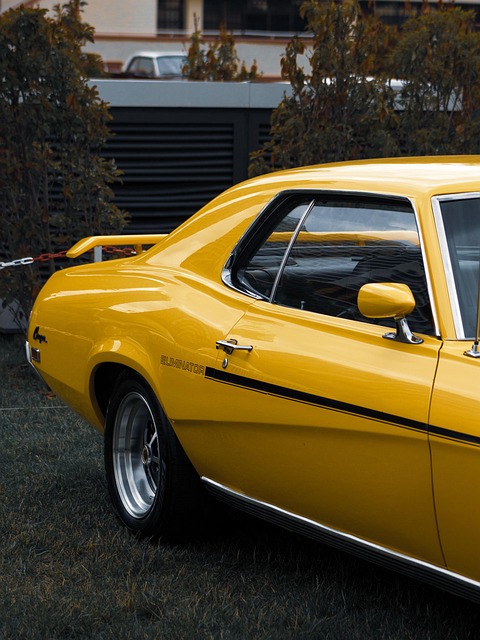
Modern vehicles are equipped with a myriad of advanced sensors that play a pivotal role in enhancing safety and restoration processes. These sensors act as vigilant eyes, gathering data from various angles to create a comprehensive picture of a vehicle’s condition. By detecting even the slightest anomalies or damage, they unlock insights that were once hidden, enabling precise restoration techniques. For instance, 3D imaging sensors can map the vehicle’s exterior, providing exact measurements for fender repair or auto glass replacement, ensuring every detail is accounted for.
This wealth of data allows skilled technicians in a vehicle body shop to make informed decisions, whether it’s realigning frames to flawless specifications or replacing components with utmost accuracy. Advanced sensors revolutionise how we approach vehicle safety restoration, making the process faster, more efficient, and ultimately, safer.
AI Integration: Enhancing Safety Analysis and Predictions

The integration of Artificial Intelligence (AI) into vehicle safety restoration has revolutionized the way we analyze and predict potential hazards. AI algorithms can sift through vast amounts of data from various sensors, cameras, and radar systems installed in modern vehicles. This enables them to identify patterns and anomalies that might be imperceptible to human analysts, leading to more accurate safety assessments. By learning from historical incidents and real-time data, AI models predict potential failure points and areas needing improvement in vehicle design and restoration processes.
This advanced technology goes beyond mere predictive analysis; it also aids in enhancing overall vehicle safety. For instance, AI can optimize the decision-making process during car restoration by suggesting tailored solutions for specific auto body services and automotive body shop procedures. By leveraging AI’s capabilities, professionals in these sectors can ensure that each restored vehicle meets the highest safety standards, thereby fostering a culture of enhanced vehicle safety restoration.
Real-Time Monitoring: Ensuring Restored Vehicles Meet Standards

Modern technology plays a pivotal role in enhancing vehicle safety restoration accuracy. One such innovation is real-time monitoring systems that allow professionals to track and assess vehicles throughout the restoration process. These advanced tools enable mechanics at auto collision centers to verify that every component meets stringent industry standards. By integrating sensors and digital diagnostics, restorers can identify minute discrepancies or deviations from the prescribed guidelines, ensuring that each restored vehicle is safe and reliable.
This real-time oversight is particularly crucial for maintaining consistency across various stages of auto repair. Unlike relying solely on manual inspections, which can be subjective and time-consuming, technology provides objective data points and precise measurements. As a result, auto repair shops are better equipped to deliver high-quality vehicle safety restoration services, giving customers peace of mind when choosing an auto collision center for their vehicle’s needs near them.
Modern technology, including advanced sensors, AI integration, and real-time monitoring, significantly enhances vehicle safety restoration accuracy. By unlocking valuable data through these innovations, restorers can achieve a higher level of precision and consistency. AI-driven analysis predicts potential issues, while real-time monitoring ensures restored vehicles meet stringent industry standards. This technological advancement not only improves the overall quality of repairs but also prioritizes passenger safety, making vehicle safety restoration more reliable and efficient than ever before.
